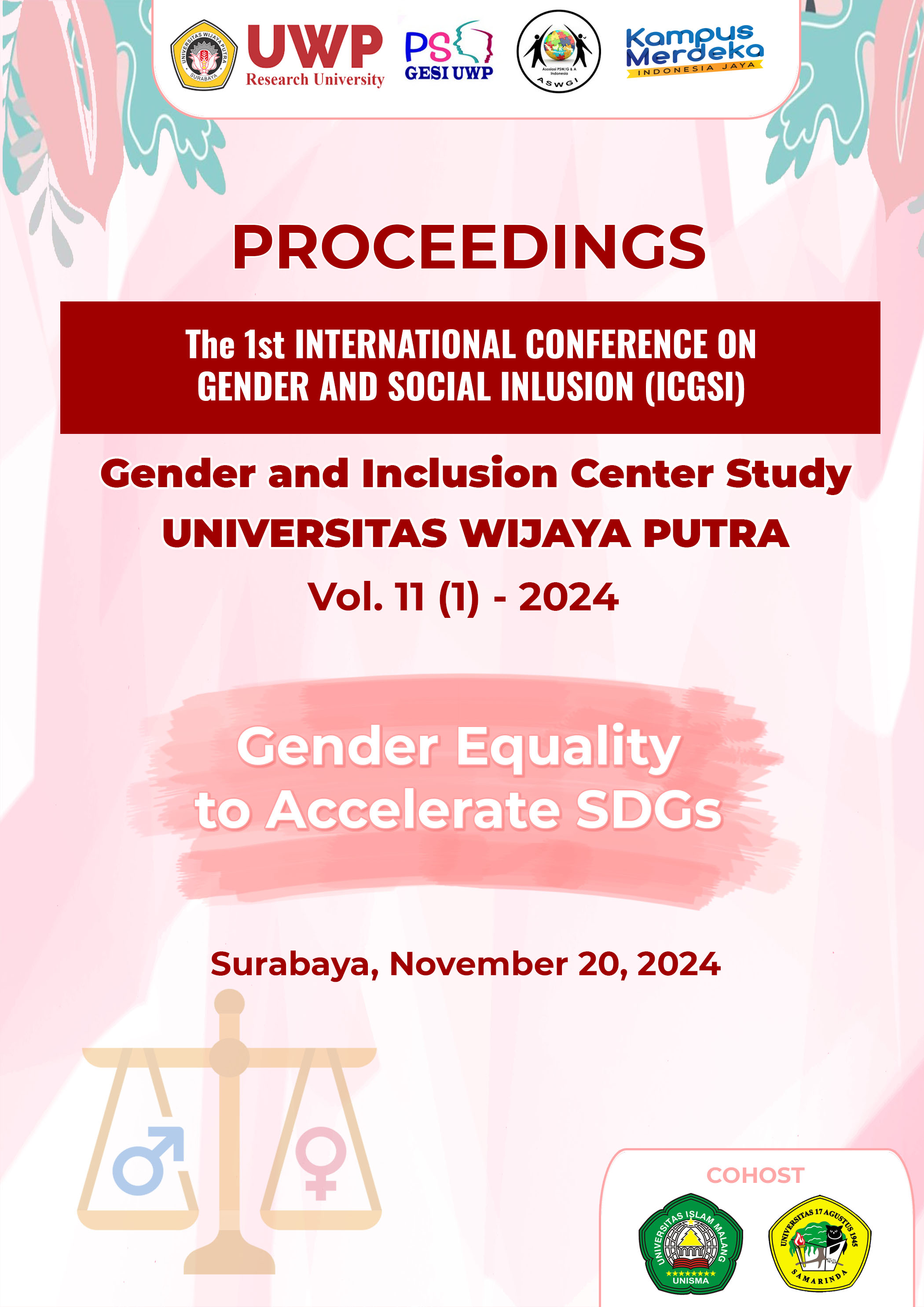Literature Study: The Impact of Fatherlessness on Adolescent Self-Control Ability
DOI:
https://doi.org/10.38156/gesi.v9i1.388Kata Kunci:
Fatherless, Self controlAbstrak
. Family is an important environment for child development. The role of parents, especially fathers, is crucial in supporting the psychological well-being of children, especially adolescents. Fatherlessness can have a negative impact on adolescents' cognitive and psychological development. This article reports the results of a systematic review of articles published between 2018 and 2024 focusing on the impact of fatherlessness on adolescents' self-control skills. This systematic review aims to determine the impact of fatherlessness on adolescent self-control. This study uses a systematic review method that follows the PRISMA (Preferred Reporting Items for Systematic Reviews and Meta-Analyses) guidelines and uses the Google Scholar database. There were 249 articles included and then selected with several predetermined inclusion and exclusion criteria. Of the 249 articles, 4 articles met the requirements. The articles found that fatherlessness has a significant negative impact on the psychological state of adolescents. Adolescents who experience fatherlessness tend to show low self-control abilities. Many factors influence the tendency of aggressive behavior in adolescents, including biological factors, difficult temperament, negative social influences, drug use, the influence of violent impressions, feeling less cared for by parents, depressed, bad associations and family conditions and so on. Adolescents who have fathers who are involved in their lives and discuss the importance of their decisions show lower levels of aggression compared to adolescents with fathers who are less involved in their activities, resulting in good self-control skills.
Referensi
Agustin, W., & Kudus, W. A. (2023). Disfungsi Orang Tua dalam Pembentukan Pendidikan dan Kemandirian Anak di Lingkungan Cidunak Kota Cilegon. Didaktik : Jurnal Ilmiah PGSD FKIP Universitas Mandi, 9(2), 440–4449.
Ashari, Y. (2018). Fatherless in indonesia and its impact on children’s psychological development. Psikoislamika : Jurnal Psikologi Dan Psikologi Islam, 15(1), 35. https://doi.org/10.18860/psi.v15i1.6661
Berlian, T. C., & Chitam, M. N. (2023). The Impact Of Fatherless On Students’ Learning Achievement In Primary School X Boyolali City. The Impact of College on Students, 01(01), 15–23. https://doi.org/10.4324/9780429339059
East, L., Jackson, D., & O’Brien, L. (2006). Father absence and adolescent development: a review of the literature. Journal Of Child Health Care, 10 (4). 283-295. doi: 10.1177/1367493506067869
Fitroh, S. F. (2014). Dampak Fatherless Terhadap Prestasi Belajar Anak. Jurnal PG-PAUD Trunojoyo, 1(2), 83–91.
Iskandar, A. S., Prasetyo, E., & Mulya, H. C. (2023). Dinamika Self-Esteem Pada Emerging Adulthood Yang Fatherless. Experientia: Jurnal Psikologi Indonesia, 11(2), 173–197. https://doi.org/10.33508/exp.v11i2.5122
Situmorang, N, Z., Pratiwi, Y., & Agung, D. P. (2018). Peran ayah dan kontrol diri sebagai preditor kecenderungan perilaku agresif remaja. Jurnal Muara Ilmu Sosial, Humaniora, dan Seni, 2 (1), 115 126. doi: https://doi.org/10.36341/psi.v3i2.1142
Sundari, A. R., & Herdajani, F. (2013). Dampak Fatherlesness Terhadap Perkembangan Psikologis Anak. Prosiding Seminar Nasional Parenting 2013, 53(9), 1689–1699.
Suharti, N. (2016). Bimbingan Kelompok Untuk Meningkatkan Penyesuaian Sosial Siswa Kelas Ix-E Smp Negeri 1 Wonoasri Kabupaten Madiun. Counsellia: Jurnal Bimbingan Dan Konseling, 4(2). https://doi.org/10.25273/counsellia.v4i2.260
Yuliana, E.L., Khumas, A., & Ansar, W. (2023). The Effect of Fatherless on Self-Control of Adolescents Who Do Not Live with Fathers. Pinisi Joournal of art, Humanity and Social Studies. Vol 3 No 5


